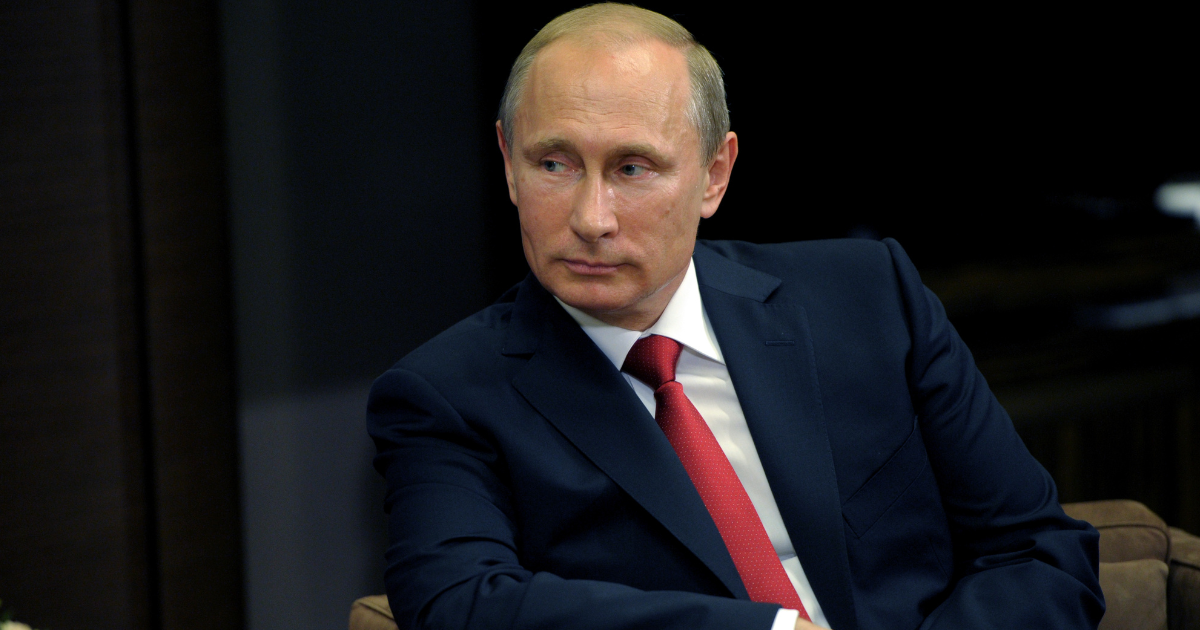EXCLUSIVE: Inside Russia’s Plan to Delay Nuclear War

Donald Trump’s recent public statements and reported private calls reveal a White House with no grasp of Russia’s ceasefire proposals or negotiation terms, says veteran Moscow-based journalist John Helmer. Trump is described as either oblivious or unable to comprehend Russia’s repeated diplomatic overtures—including an Istanbul proposal for a third round of talks and a new “subset” of negotiating points offered via Foreign Minister Lavrov. Instead, Trump’s rhetoric has escalated toward threats of bombing Moscow while dismissing any serious diplomacy, leaving Moscow bracing for the possibility of an “Arrnic moment” in which U.S. missiles target its cities.
Helmer argues that Russian officials, particularly Kremlin spokesman Dmitry Peskov, have been working to “play down” Trump’s threats, not out of naivety but as a calculated effort to keep the door open for negotiations. This strategy is vital, Helmer explains, because Russia needs time to mobilize its forces while avoiding escalation to nuclear exchanges. It is an unsettling analysis that portrays the Kremlin as the comparatively restrained actor, dealing with an American administration whose policy swings between commercial self-interest—arms sales billed back to Europe—and delusional dreams of escalation dominance.
The Kremlin has taken note of US President Donald Trump’s statement on Monday about military aid supplies to Kiev and will thoroughly analyze his rhetoric, Kremlin Spokesman Dmitry Peskov said at a news briefing:https://t.co/q0NxEq5LjL pic.twitter.com/JgTsFhHOvb
— TASS (@tassagency_en) July 15, 2025
But the heart of Helmer’s warning is more chilling: he contends that Trump’s cognitive decline is a critical, under-reported national security risk. Drawing on family medical history, he points to Trump’s potential early-stage dementia, suggesting the president may literally be incapable of remembering negotiating terms, leading to policy driven by rage, slogans, and threats of mass destruction.
Drawing on family medical history, he points to Trump’s potential early-stage dementia, suggesting the president may literally be incapable of remembering negotiating terms, leading to policy driven by rage, slogans, and threats of mass destruction.
Helmer details a transactional arms pipeline designed to evade U.S. congressional oversight by having NATO allies buy advanced missile systems—including Tomahawks with ranges of up to 2,000 kilometers—then quietly transfer them to Ukraine. This arrangement turns Europe into both the paymaster and the legal shield for U.S. escalation, while giving Washington plausible deniability. Helmer notes that Germany, in particular, is leading with a €50 billion rearmament plan, despite massive public opposition being suppressed by what he calls a “very strong regime in repression.” He warns that this repression is essential to keep European voters paying for a war many privately oppose.
The interview also shines light on the Baltic and Mediterranean “shadow war” already underway. Helmer describes covert Western attacks on Russian oil tankers, using special forces and intelligence services to sabotage shipping under the cover of future “secondary sanctions” on buyers like India, China, and Brazil. This aspect of the conflict—economic warfare escalating into military strikes on commercial shipping—rarely gets mainstream coverage, yet Helmer says it’s already provoking Russian naval escorts of tankers in the Baltic Sea. It’s a portrait of hybrid war well past the point of diplomatic fiction.
Equally under-reported, Helmer claims, is the risk of black ops and political assassinations inside Russia designed to look like domestic terrorism. He points to train derailments and bridge attacks already labeled terrorism, suggesting Western intelligence services will escalate these covert operations, while Russian security services scramble to prepare. It is, Helmer says, another chapter of what he repeatedly calls “World War II,” fought this time through cutouts and proxies.
Then there is the slow-motion collision with China and India. Helmer dismisses Washington’s threats of “secondary sanctions” on these countries as a fantasy, pointing out that previous rounds of sanctions failed to stop their purchases of Russian oil. He notes that the Biden administration tried and failed to isolate Russia diplomatically from Beijing and New Delhi—and sees no reason the Trump team will do any better. Instead, he suggests U.S. policy may drift toward ever-more desperate forms of economic and military coercion, expanding the conflict’s global scope.
Perhaps the most novel insight is Helmer’s deep dive into the Russia–Azerbaijan relationship, which he says is being cynically manipulated by outside powers. He recounts personal negotiations and decades of observing Baku’s internal politics, describing a system where family networks, business deals, and foreign intelligence all intersect. Helmer argues that Israel and the U.S. have used Azerbaijan as a platform to threaten Iran, with Tel Aviv even launching airstrikes on Iran from Azeri territory—a fact almost invisible in Western press. Iran, he notes, is obsessed with Israel’s presence in Azerbaijan and deeply suspicious of President Ilham Aliyev’s willingness to take foreign money in exchange for geopolitical leverage.
Helmer also describes how a recent civilian airliner incident and police killings of Azeri gang suspects in Russia have inflamed nationalist tensions between Moscow and Baku. He details tit-for-tat arrests and humiliations, portraying a fragile relationship vulnerable to manipulation by foreign intelligence services. Yet he warns both Russia and Azerbaijan know how dangerous this game is—and are working quietly to defuse the crisis, despite pressures from the U.S., U.K., and Turkey to keep the region unstable.
Finally, Helmer argues that Russia and Iran share a vital interest in preventing Azerbaijan from becoming a cockpit of conflict with Turkey. Despite deep distrust of Turkish intentions, both Moscow and Tehran see a strategic imperative to avoid forcing Ankara to pick sides too aggressively, which could lead to a regional conflagration. It is a rare glimpse of realpolitik missing from most headlines, where Russia and Iran appear not as cartoon villains, but as powers struggling to manage an incredibly complex and combustible neighborhood.
John Helmer is an Australian-born journalist, author, and longtime foreign correspondent known for his deep expertise on Russia, post-Soviet affairs, and international political economy. Active in Moscow since the early 1990s, Helmer has been one of the longest continuously serving Western journalists in Russia, reporting independently without institutional backing. He previously served as an adviser to government leaders, including the prime minister of Greece, and worked as a consultant on strategic industries and trade policy. Helmer’s reporting has focused on the intersection of politics, business, and organized crime in Russia, offering in-depth investigations that often challenge mainstream Western narratives.
Helmer holds advanced academic qualifications in political science and has published multiple books and extensive articles analyzing Russian statecraft, oligarchic networks, and geopolitical rivalries. He is recognized for his independent stance and willingness to critique both Western and Russian elites, often highlighting overlooked details of arms sales, sanctions, and energy strategy. Throughout his career, Helmer has cultivated sources at senior levels in Moscow and other capitals, allowing him to deliver nuanced, insider-informed analysis of events from the Chechen wars to the ongoing conflict in Ukraine. His work has been both respected and controversial for its critical take on Western media simplifications and its insistence on understanding Russia’s strategic calculations on their own terms.
Source:
